Political Blogs
Smith Proposal to Protect Homes & Property near Mississippi River Passes U.S. House
June 11th 2018 by Dee Loflin
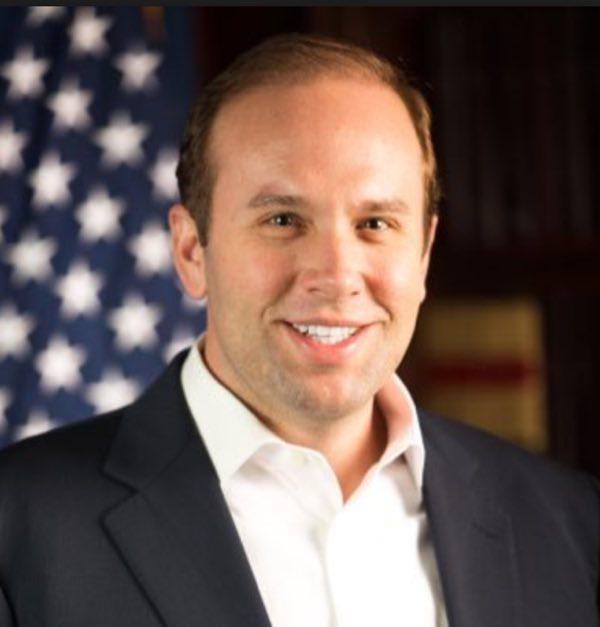
Washington, D.C. - The U.S. House of Representatives passed the Water Resources and Development Act (WRDA) of 2018 on Wednesday with Congressman Jason Smith’s (MO-08) amendment included to protect Missouri homes and farmland residing along the Mississippi River.
“The 2011 Army Corps activation of the Birds Point Levee was one the darkest days for the families and farmers residing along the river. What’s worse, it took the Corps eighteen months to return the levees back to their original design. That is absolutely unacceptable,” said Congressman Smith. “The people of Southeast Missouri are resilient and did their best to pick up the pieces and return to their lives, but it must never happen again. My amendment makes clear the Army Corps cannot activate any floodway unless they are prepared to restore it quickly. Simply put, a levee should never even be a candidate for activation unless there is quick and clear plan to restore it. That wasn’t the case back then, but it will be now.”
In 2011 the Mississippi River experienced historic flooding and the Army Corps of Engineers detonated the Birds Point levee in Southeast Missouri. 130,000 acres of land in Southeast Missouri were flooded, destroying homes, farmland, and communities.
Wednesday the U.S. House of Representatives passed the water resources bill with Congressman Smith’s amendment included, requiring the prompt restoration and rebuilding for any levee damaged by the Army Corps of Engineers. It was the latest example of Congressman Smith intervening with the Army Corps to better protect Missourians from flooding.
In December of 2015 constant rainfall caused the Mississippi River waters to quickly rise. Congressman Smith organized public meetings with the Army Corps so southeast Missourians could address their concerns directly to the Corps and ensure the levee wouldn’t be activated again.
In October last year, Congressman Smith convinced the St. Louis Corps of Engineers to reverse their previous decision and fund a study on the cause of frequent flooding along Joachin Creek in De Soto.
Recently in March, Congressman Smith discussed the importance of advancing transportation on the Mississippi River with other federal elected officials and river industry leaders, urging modernizing and maintaining the system to protect residents.
“Many of these systems have fallen into disrepair and neglect, but fortunately President Trump understands how important it is to rebuild the nation’s infrastructure to support a growing economy,” said Congressman Smith.
Last Updated on June 11th 2018 by Dee Loflin
https://showmetimes.com/Blogpost/vaj6/Smith-Proposal-to-Protect-Homes--Property-near-Mississippi-River-Passes-US-House
Swearing in of New MO Governor Mike Parson
June 11th 2018 by Dee Loflin
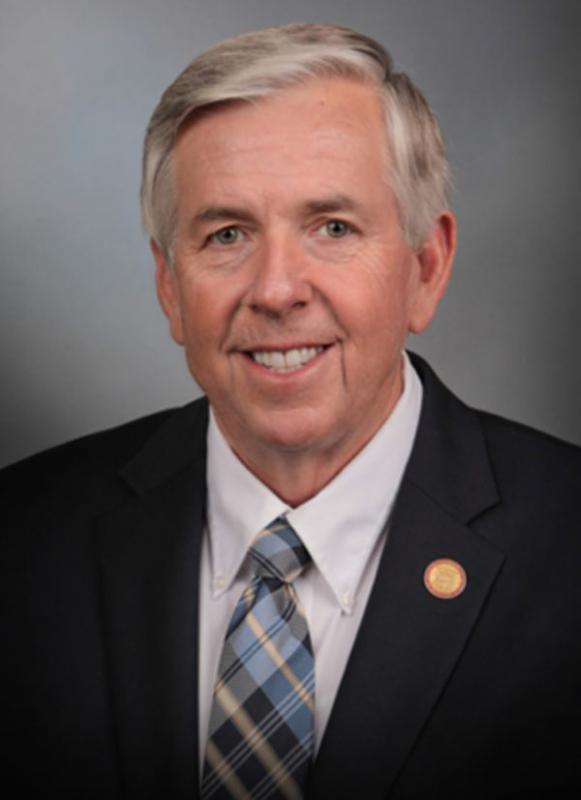
Blunt Statement on the Swearing-In of Missouri Governor Mike Parson
Washington, D.C. - U.S. Senator Roy Blunt (Mo.) released the following statement today after Mike Parson was sworn in as governor of Missouri:
“Mike Parson became Sheriff of Polk County the same week I became the President of Southwest Baptist University in Bolivar in 1993. We have been good friends since then. As a county official, an effective state legislator, and Lieutenant Governor, he understands our state in ways that few people do. He will be a great governor and I look forward to helping him in any way I can.”
Last Updated on June 11th 2018 by Dee Loflin
https://showmetimes.com/Blogpost/vaji/Swearing-in-of-New-MO-Governor-Mike-Parson
Smith Introduces Bill to Permanently Protect American Families
June 10th 2018 by Dee Loflin
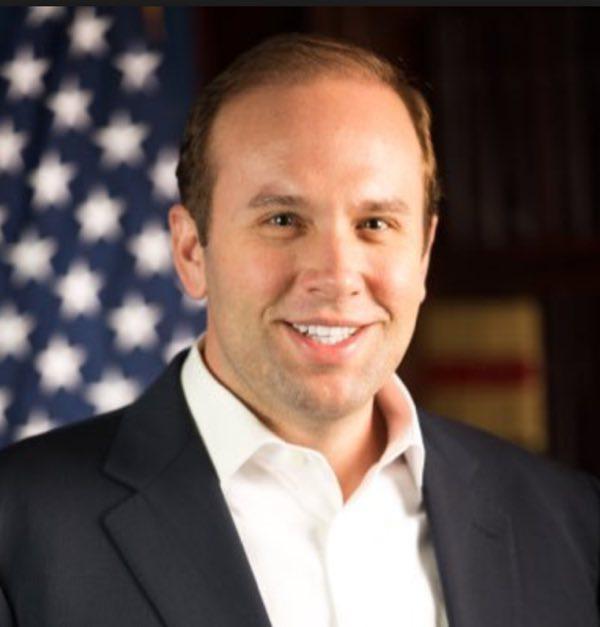
Smith Introduces Bill to Permanently Protect American Families
Bill, H.R. 5903, will make permanent new expanded per Child Tax Credit
WASHINGTON, DC - Today, Congressman Jason Smith, a Member of the U.S. House of Representatives Committee on Ways & Means, responsible for all federal taxation policy, introduced H.R. 5903, the Permanent Tax Relief for Working Families Act. The legislation would make permanent the new and expanded per Child Tax Credit established under the Tax Cuts & Jobs Act.
Upon introduction Congressman Smith remarked, “The old tax code punished working families for doing just that, being families. Becoming a parent is the most important job a mother or father will ever have and our tax code should recognize that, not make millions of Americans choose between starting a family or remaining in the workforce. The Child Tax Credit is an important component of allowing growing families or families just starting out a chance to save a little more, invest a little more and recoup some of the financial hardship which can often accompany the joys of having a family. ”
Before the Tax Cuts & Jobs Act, the per Child Tax Credit was only available to certain qualifying families and worth up to $1,000. The new Tax Cuts & Jobs Act, co-authored by Congressman Smith and signed into law by President Trump in December, expanded the credit to $2,000 per child with a valid social security number, increased refundability levels of the credit for low income families and increased phase-out levels so more families could access the credit. In crafting the new law and advocating for the more beneficial child credit, Smith met and worked with President Trump’s daughter, Ivanka Trump, who has served as a champion of working families and was a strong proponent of the credit doubling. Rep. Smith and First Daughter Ivanka also worked to maintain important pro family tax provisions such as the Child and Dependent Care Credit to help with the cost of child care expenses and the allowance of pre-tax dollars to be used for dependent care.
While the initial U.S. House of Representatives version of the Tax Cuts & Jobs Act made the new enhanced Child Tax Credit permanent, U.S. Senate filibuster rules prevented permanency. As a result, the Tax Cuts & Jobs Act was only able to double the credit’s value for the next several years, expiring in the near future. Smith’s bill would provide certainty to taxpayers who are trying to plan for their family and lives by making permanent the new expanded per Child Tax Credit. Specifically, Smith’s bill would make permanent the doubling of the credit’s value to $2,000 along with new refundability and phase-out levels.
“With its lower rates, doubling of the standard deduction and doubling of the per Child Tax Credit, the Tax Cuts and Jobs Act was a huge win for the families of southern Missouri,” remarked Smith. He continued, “It is now up to us to provide them with the certainty that these new rates and especially the per child credit will be there for them in the future as they plan for their lives. With adjusted withholding kicking in, the Tax Cuts and Jobs Act has put more money in Missourians pockets – I have seen it first hand from the farmers, business owners and families I have met with. Now, as those same individuals plan for what is next in their lives or for their farm or business, we must provide them with the certainty that those savings will continue well into the future,” Smith concluded.
Last Updated on June 10th 2018 by Dee Loflin
https://showmetimes.com/Blogpost/vaim/Smith-Introduces-Bill-to-Permanently-Protect-American-Families
Congressman Jason Smith's Capitol Report - Valuing Life
June 04th 2018 by Dee Loflin
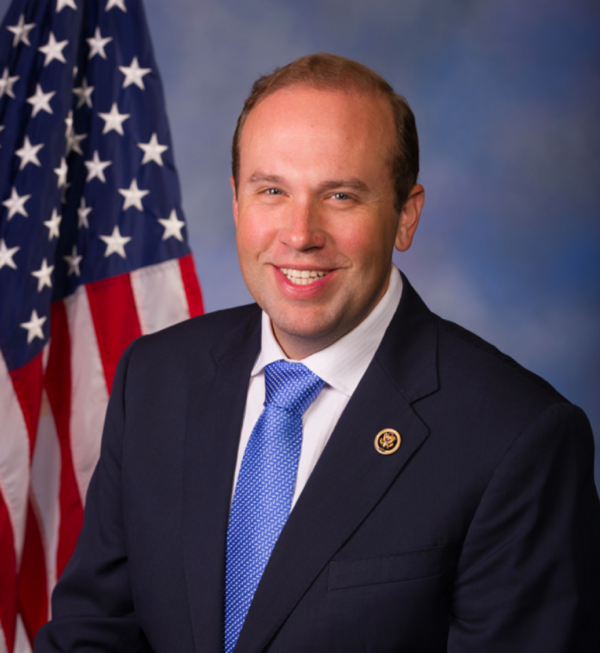
Congressman Smith Capitol Report
Valuing Life
June 1, 2018
Protecting innocent life. Whether just conceived or on your death bed, innocent life is something we must never stop fighting to defend. In the last two weeks some of the biggest strides in the fight to protect life have taken place, thanks in large part to a President who values the need to protect those who can’t fight for themselves.
Announced on May 18, President Trump’s “Protect Life Rule” ensures that any federal family planning money (your tax dollars!) will be directed AWAY from centers which provide abortion services and instead diverted to pro-life maternal support facilities like the Rolla Pregnancy Resource Center, Birthright of Cape Girardeau, the Options for Women (Center for Life) in Ste. Genevieve and Perryville, and so many more important pro-life centers around Missouri. Cutting off federal dollars for facilities which provide abortion services has been a consistent and meaningful fight of mine, unfortunately our efforts were always stymied by a broken United States Senate, subject to rule of the minority with its filibuster tactics. The hardworking family first folks of Missouri don’t deserve to have their taxpayer dollars used to perform abortion services or support facilities which offer such options to expectant mothers. Cutting off federal funding for abortion providers was something started by President Reagan, upheld by the United States Supreme Court and is now finally being carried out by President Trump.
This week, President Trump also signed into law the “Right to Try Act”, legislation I supported in Congress which will give terminally ill patients the right to fight for life. Many terminally ill patients and their doctors know there are drugs and treatments for their diseases which may soon hit the market, but are still a few years away from final Food & Drug Administration (FDA) approval. Unfortunately, in many instances those are precious years these patients don’t have. Bureaucratic red tape shouldn’t stand in their family’s way of doing everything they can to save their loved one. Every year over 1 million Americans die from terminal illnesses, the Right to Try Act will allow patients like these a chance to fight back and a new resource in their fight for life. Specifically the new law will allow terminally ill patients to access drugs which have undergone the FDA’s Phase I of safety testing, but are not yet through the final approval process. This is important new access to medicines which in many cases will save lives. Bureaucracy should never thwart innovation which can save lives.
Beyond the beginning and end of life, we have also taken important steps to protect innocent life from deadly Pediatric Cancers which rob children of their futures. Last week, Congress passed The Childhood Cancer Survivorship, Treatment, Access and Research Act. This important piece of legislation established grants to support Pediatric Cancer research aimed at getting a better understanding of cancers impacting children and the effects of different treatment on those cancers. With better information we can make sure these children are getting better care which will yield better life saving results.
While the first 18 months of President Trump have generated great economic and security successes such as the removal of over 1000 bureaucratic federal regulations, massive tax relief, greater border security and the decimation of the ISIS terrorist network, it is also important to not overlook the significant advances which have been made in the most important area of all, the fight for life. Formally implementing a ban on federal dollars to abortion service providers, appointing conservative pro-life judges like Neil Gorsuch, giving terminally ill patients access to medications which will save lives, and enhancing support for childhood cancer research are life changing victories for millions of Americans today and those not yet born. Our fight isn’t over, but with so many advancements I am excited for what the future holds in our battle for the right to life.
Last Updated on June 04th 2018 by Dee Loflin
https://showmetimes.com/Blogpost/vai4/Congressman-Jason-Smiths-Capitol-Report--Valuing-Life
Senators to FCC: Wireless Coverage Map Falls Short
May 31st 2018 by Dee Loflin
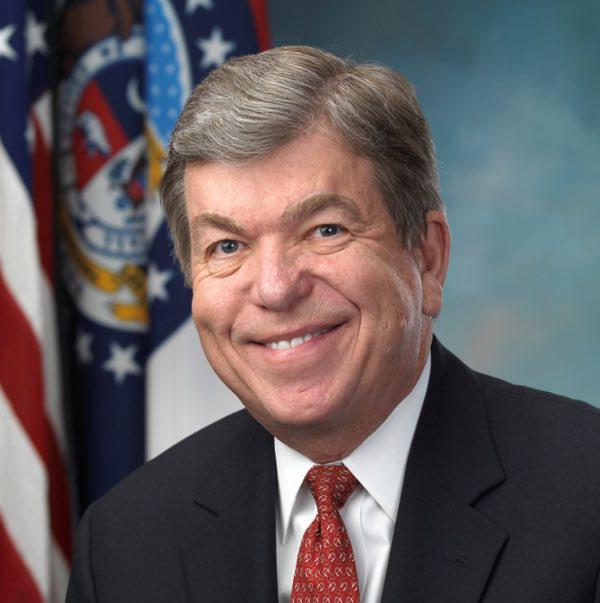
Bipartisan Group Calls on FCC to Extend Challenge Process for Map to Determine $4.53 Billion in Rural Broadband Support
Washington, D.C. - U.S Senator Roy Blunt (Mo.), a member of the U.S. Senate Commerce Committee, joined a bipartisan group of 29 Senators in sending a letter to Federal Communications Commission (FCC) Chairman Ajit Pai urging him to extend the challenge process for the map of eligible areas for Mobility Fund Phase II support. The FCC’s presumptive eligibility map will help determine up to $4.53 billion in support for rural wireless broadband expansion over the next 10 years.
“While you have noted that state, local, and Tribal governments can participate in the challenge process, absent additional direction, they may remain unaware or unprepared to do so,” the senators wrote. “We appreciate and encourage additional outreach to state, local, and Tribal governments on how they can participate in the challenge process.”
In the letter, the senators asked the FCC to extend the challenge process window by 90 days to allow additional outreach to stakeholders, and to allow challengers to assemble the necessary data to challenge the eligibility map in their area.
In March, Blunt and a bipartisan group of senators sent a letter to the FCC expressing serious concerns about the agency’s Mobility Fund Phase II map. In the letter, the senators noted “significant gaps in mobile coverage beyond what is represented by the map’s initial presentation of ‘eligible areas.’”
Click here for more on Blunt’s efforts to expand rural broadband.
In addition to Blunt, the letter was signed by U.S. Senators Roger Wicker (Miss.), Maggie Hassan (N.H.), Jerry Moran (Kan.), Brian Schatz (Hawaii), Angus King (Maine), Cory Gardner (Colo.), Sherrod Brown (Ohio), Pat Roberts (Kan.), Jeanne Shaheen (N.H.), James Lankford (Okla.), Ron Wyden (Ore.), Richard Shelby (Ala.), Tammy Baldwin (Wis.), Cindy Hyde-Smith (Miss.), Patrick Leahy (Vt.), Ron Johnson (Wisc.), Amy Klobuchar (Minn.), Todd Young (Ind.), Thom Tillis (N.C.), Chris Coons (Del.), Claire McCaskill (Mo.), Kamala Harris (Calif.), Tina Smith (Minn.), Tom Udall (N.M.), Catherine Cortez Masto (Nev.), Tammy Duckworth (Ill.), Doug Jones (Ala.), Edward Markey (Mass.), and Deborah Fischer (Neb.).
The letter reads in full:
Dear Chairman Pai:
As you know, many of us have expressed concern about the accuracy of the Federal Communications Commission’s map of eligible areas for Mobility Fund Phase II Support (MFII). This map is intended to reflect areas that lack unsubsidized mobile 4G LTE service, but it unfortunately falls short of an accurate depiction of areas in need of universal service support. Therefore, the FCC’s challenge process will play an outsized role in determining appropriate eligible areas for MFII support. Communities in our states that are not initially eligible or successfully challenged will be ineligible for up to $4.53 billion in support over the next 10 years, exacerbating the digital divide and denying fundamental economic and safety opportunities to rural communities.
While you have noted that state, local, and Tribal governments can participate in the challenge process, absent additional direction, they may remain unaware or unprepared to do so. We appreciate and encourage additional outreach to state, local, and Tribal governments on how they can participate in the challenge process. However, with less than 100 days remaining and additional state outreach presentations not yet completed, MFII challengers will struggle within the current timeframe to provide requisite information that will correct significant flaws in the current map. Additionally, the parameters for challenges have already changed once during the existing challenge timeframe through the Order on Reconsideration on April 30, 2018, altering existing measurements for challenges.
In recent testimony before the Senate Appropriations Committee, you expressed that the FCC has “some flexibility [for] an extension of time” to ensure sufficient time for state and local governments, as well as carriers and other potential challengers, such as state farm bureaus, to fully participate in the process. To provide this additional time and encourage participation in the challenge process, we urge you to extend the current challenge process window by 90 days.
The MFII process presents an opportunity to take significant steps to address the digital divide and preserve and expand mobile broadband in rural areas. We strongly urge you to ensure this opportunity is available to all communities deserving support through compiling accurate data that reflects our constituents’ experience, including providing additional time for challengers to submit data, conducting additional information sessions for state, local, and Tribal governments, and providing Congress with an update on final eligible areas before conducting an auction of support.
Last Updated on May 31st 2018 by Dee Loflin
https://showmetimes.com/Blogpost/vahc/Senators-to-FCC-Wireless-Coverage-Map-Falls-Short

